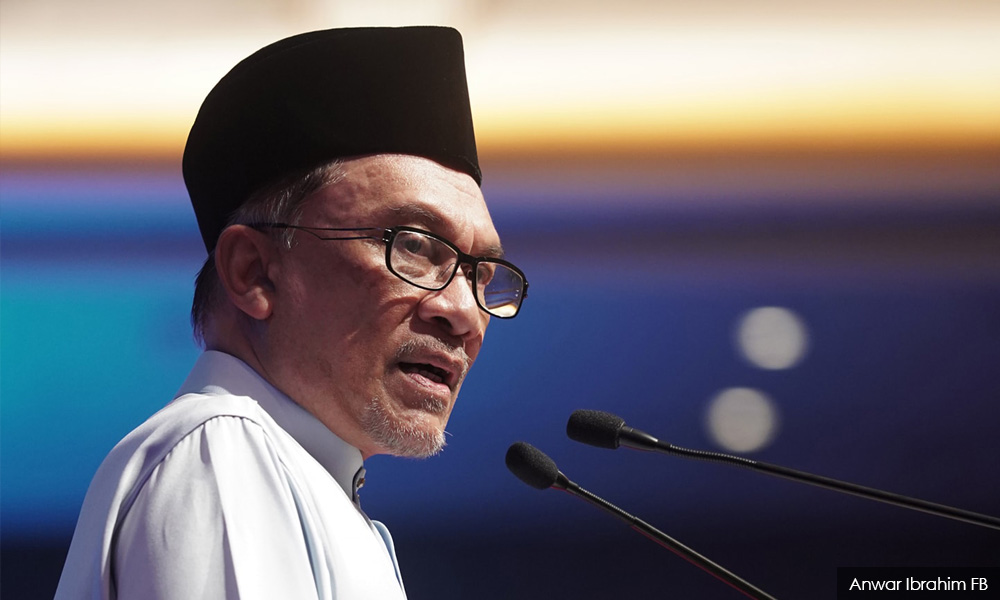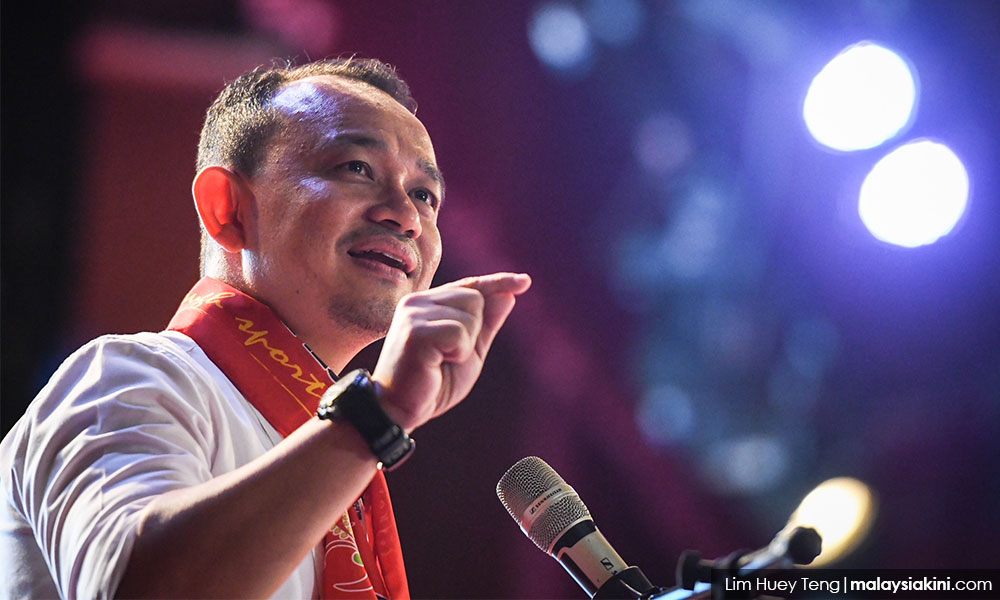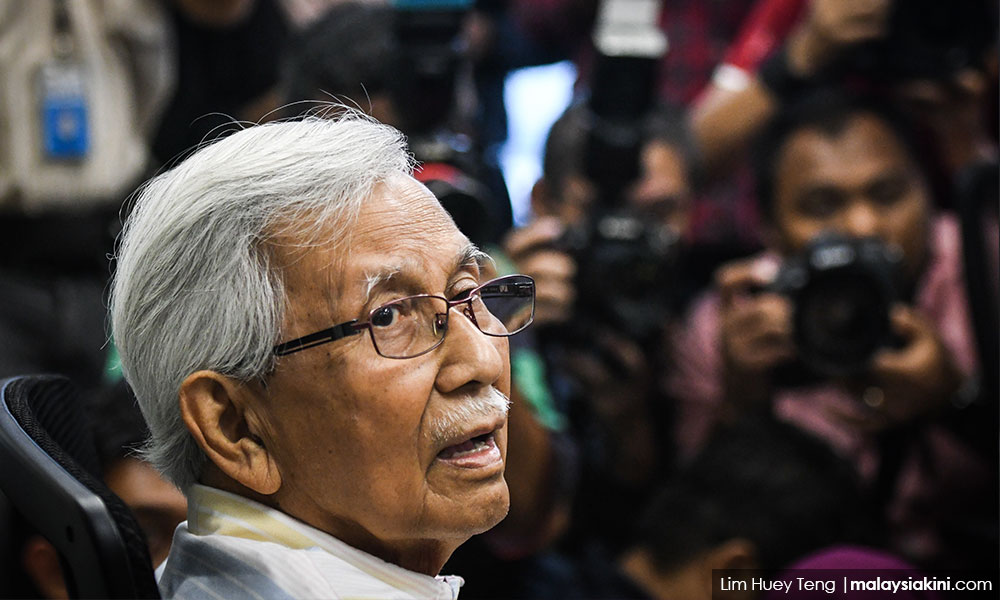COMMENT | Not many Malaysians would remember Faces of Islam. Few would even recall the book.
It was a collection of interviews with some of the sharpest Muslim minds in the world, among whom included professors Muhammad Kamal Hassan, Syed Hossein Nasr, Syed Naquib Al Attas and more. All of them were interviewed on TV3 in 1988 by Dr Ziauddin Sardar, a futurist. Anwar Ibrahim was part of the bevy of thinkers interviewed by the latter.
Yet both the book and the TV series raised Islam and the thoughts that were derivative of it, to a higher plane. "Ibadan” or worship was not about praying to God five times a day only.
Rather, it was about conducting oneself with distinction and honour with men, women, children, and the world writ large too. “Din” was not merely a religion as some of the commentators affirmed but a complete, and holistic way of life, to serve the Creator and the Created.
Prior to the book and TV program, the discourse on Islam was often confined to what the Muslims themselves wanted to hear - not what non-Muslims in turn would like to learn. Pakatan Harapan de facto leader Anwar Ibrahim was a maestro at both but a specialist on the latter.
The International Islamic University Malaysia (IIUM) was the stage, on which thousands and thousands of students were grilled on the finer points of Islam, Islamic revivalism or "tajdid”, which is reform, and "islah" which implies the significance of constant, almost, daily renewal.
Anwar did not run IIUM on a day-to-day basis. As the president, he set the direction on how to help the university evolve into a top-flight institution.

Thus English was to be the medium of instruction, while Arabic language was a minor, in addition to other fields that a student could major and become good at. Social sciences were dignified as human sciences, and revealed knowledge was considered a vital branch of practical knowledge too. Everything was pursued in sheer balance, as Islam was a religion of "Ummatul Al Wasatan", the religion of the Middle Way, of no extremes.
With or without Anwar in the 1980s, revivalist Islam would have continued to advance to all corners of the world. As part of the Commonwealth, Islamic literature and books on Islamic laws, economics, management, and strategies, were becoming increasingly prominent. Be it the works of John Voll or John Esposito, both of whom were known to Anwar too, their scholarships had struck a chord with Muslims and many the world over.
Anwar also encouraged the likes of Osman Bakar, with the leadership of Syed Naquib Al Attas to form the International Institute of Islamic Civilisation and the Malay World (Istac) which gave greater prominence to the philosophy of Imam Ghazali.
Within IIUM and Istac, it was easy to encounter experts that specialized in the works of perennialists like Hutson Smith, Ninian Smart, Annemarie Schimmel, Toshiko Izutsu, Rene Guenon, William Chittick, Sachiko Murata, and Gai Eaton.
There was also the corpus of works by the International Institute of Islamic Thought (IIIT), which is headquartered in Herndon, Virginia, US. IIIT also established a branch in IIUM.

As IIUM continues to chalk up many more academic milestones, year after year, with Education Minister Maszlee Malik (photo) declaring that he will make it the "Oxford of the Islamic World," it is important to remember that Anwar was one of the top minds who made Islam both intellectually rigorous and socially relevant.
With the help of progressive Saudi scholars like Abdul Hamid Abu Sulayman, a top thinker on Islamic international relations, Anwar made Malaysia a top center of learning.
Transformational leadership
The fact that Prime Minister Dr Mahathir Mohamad supported IIUM from its very inception since the mid-1980s is also a further testament to the commitment of the Malaysian government to IIUM to this day, and, invariably, the elevation of Islamic thought through the encyclopaedic grasp of Islam by Anwar not least.
As Anwar stakes a return to parliamentary politics through the impending by-election in Port Dickson, it is important to remember his concept of "transformational leadership". More importantly, Mahathir has recently confirmed that Anwar has matured as a holistic politician.

Mahathir's opinion is shared, widely, by former minister Daim Zainuddin (photo), who on Aug 20, in The Edge, further reinforced his belief that Anwar should indeed be the future Malaysian prime minister.
In fact, Anwar has understood that in a democracy, both civil society and a strong parliamentary system are needed to establish some semblance of institutional and social balance, without which a constitutional monarchy that is too mechanical and rigid cannot cater to the interest of all and sundry, especially the poor and marginalised.
By trying to return to office, Anwar is getting ready to deploy members of civil society to enhance the parliamentary select committees further.
Even the MACC would come under the rubric of the Parliament in future, a feature that is both bold and radical, as the cabinet would have to balance its relationship with the legislature anew, and for the greater good of the country too.
If and when the residents of Port Dickson should elect him with a greater majority, the army and civilians in the constituency are bound to gain from the same trajectory with which IIUM, Istac and IIIT in Malaysia once handsomely gained from without fail.
With Anwar, your views are as good as the efforts you put in to make them sound and intelligible. He will listen. And he will act on them.
Port Dickson is indeed lucky to have him.
RAIS HUSSIN is a supreme council member of Bersatu. He also heads its policy and strategy bureau.
The views expressed here are those of the author/contributor and do not necessarily represent the views of Malaysiakini.

